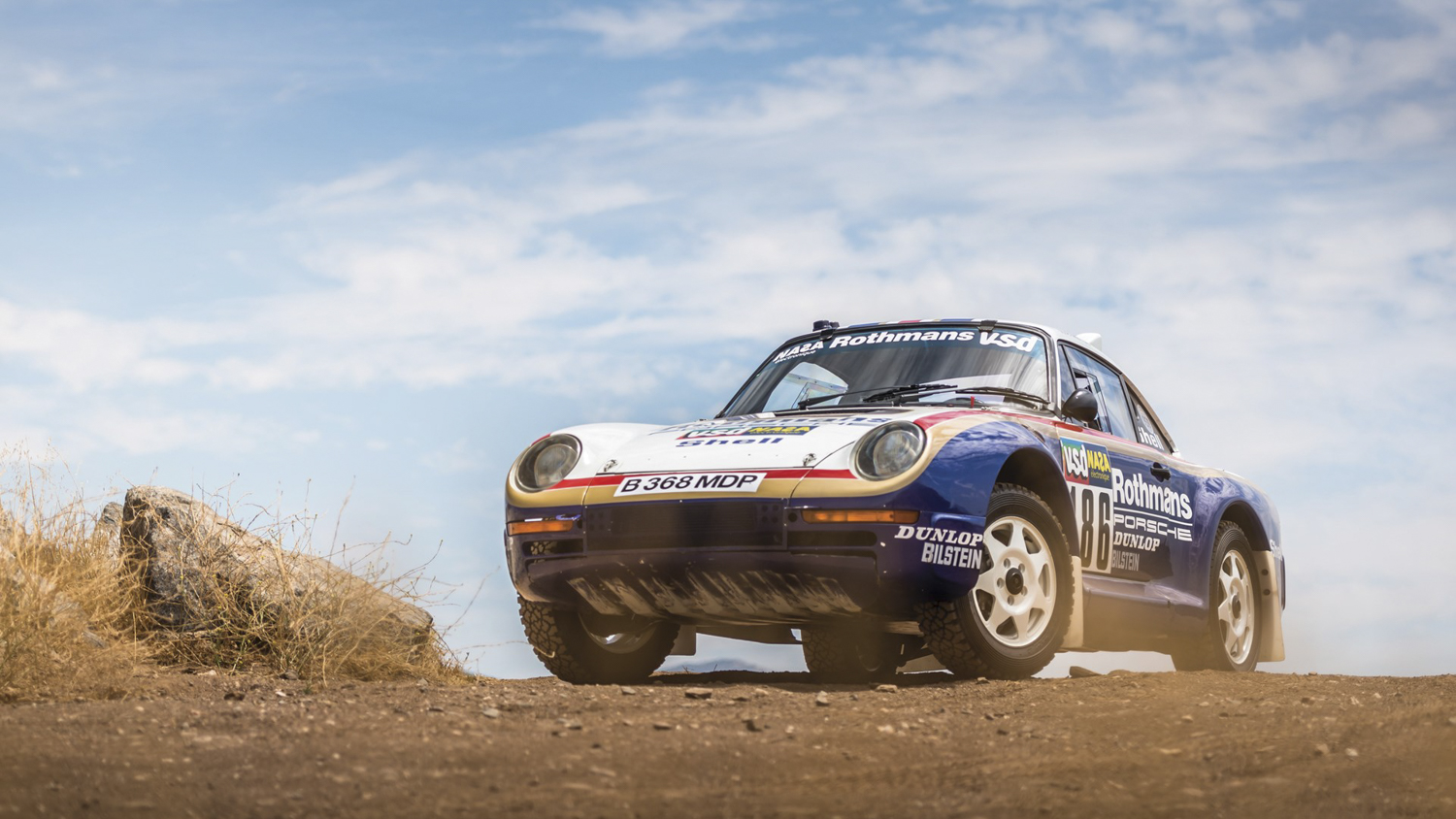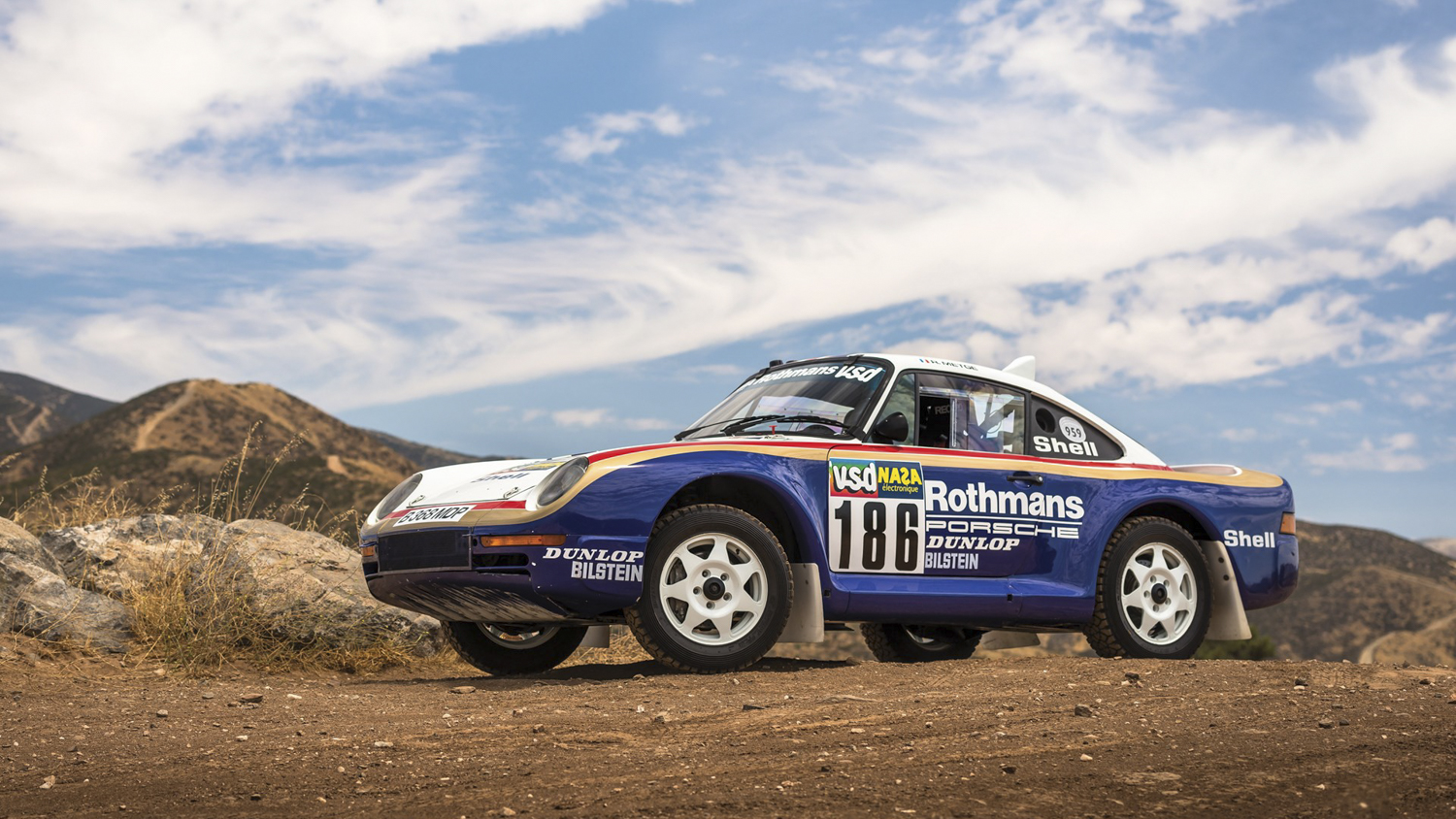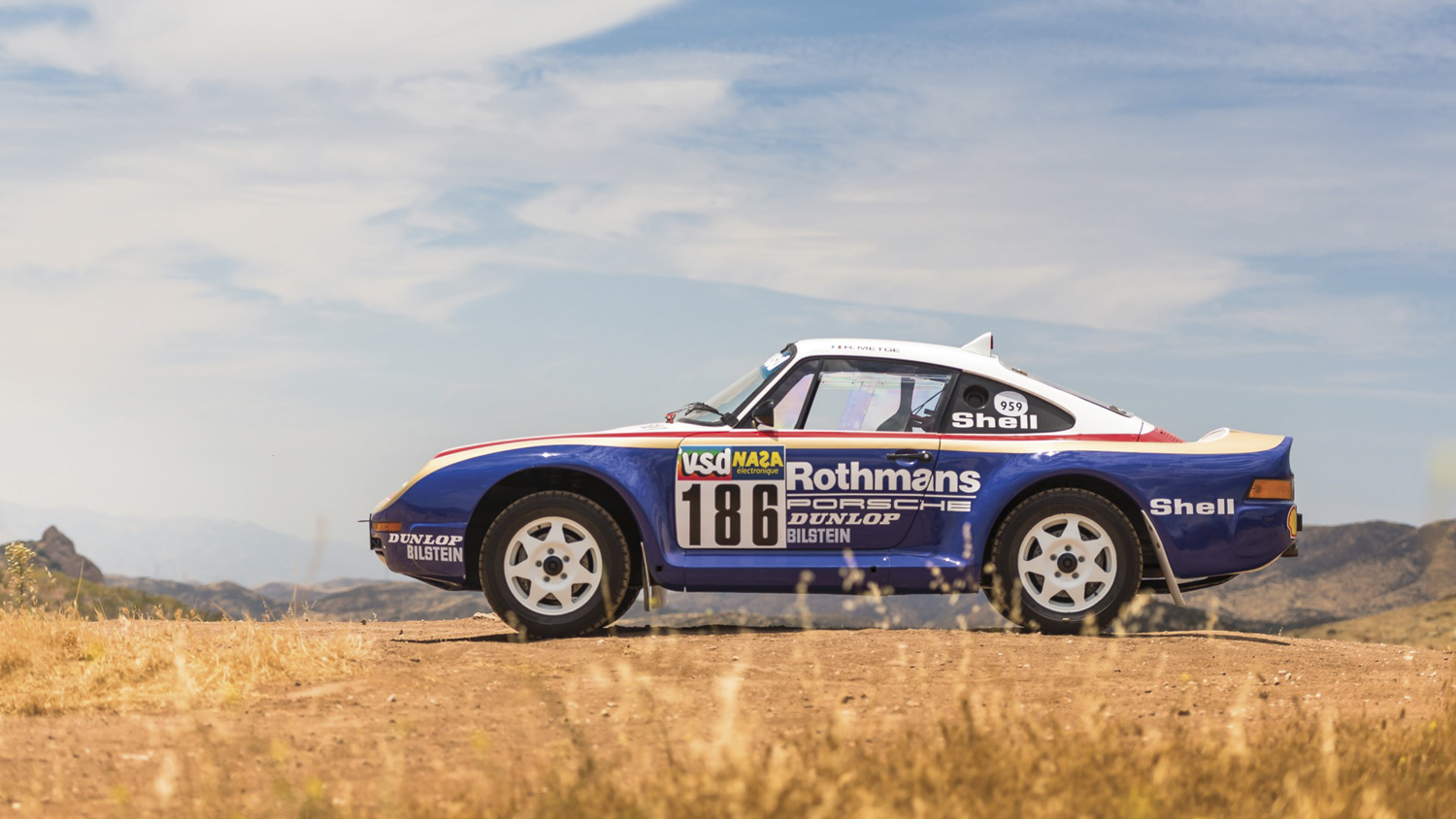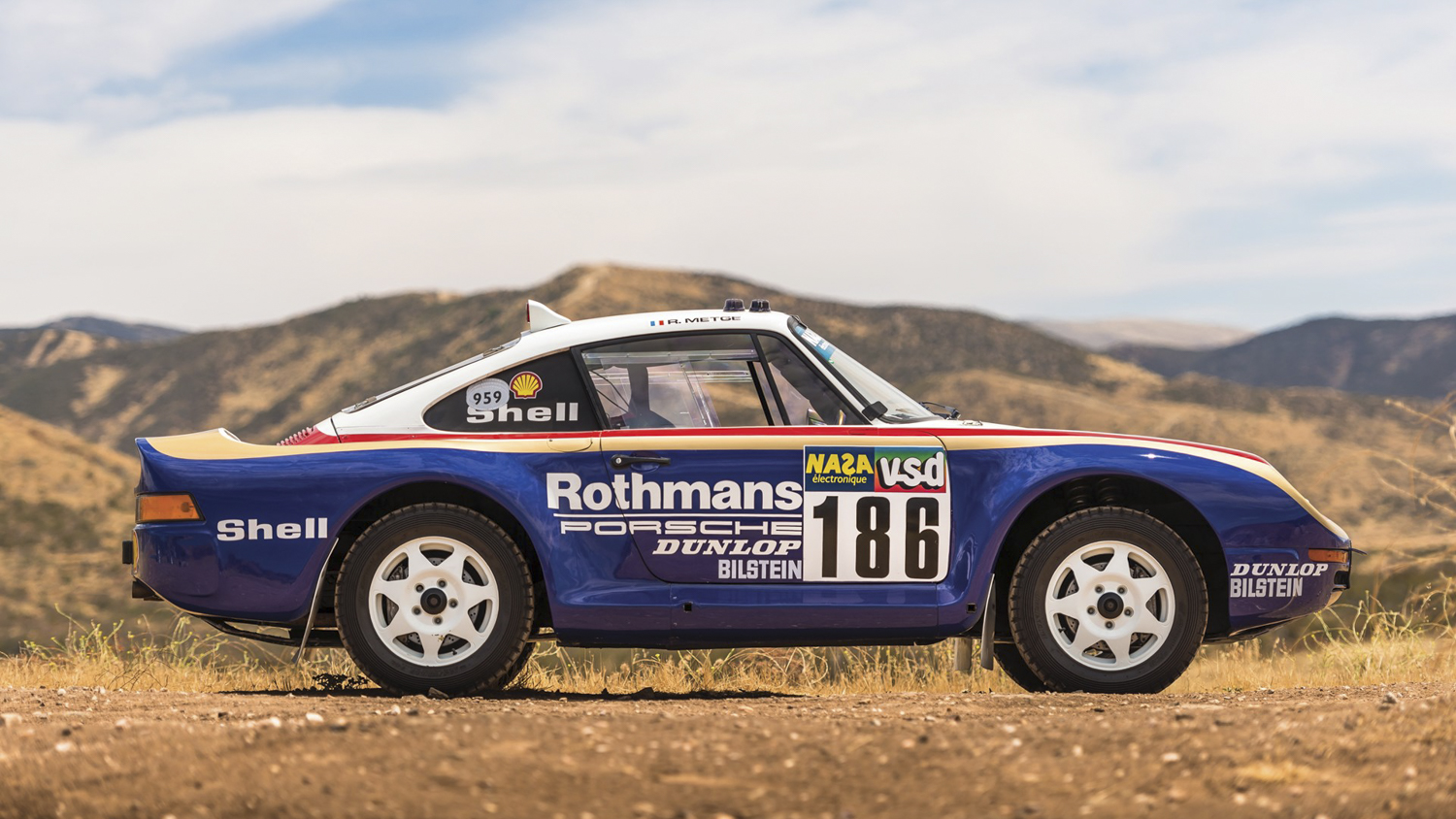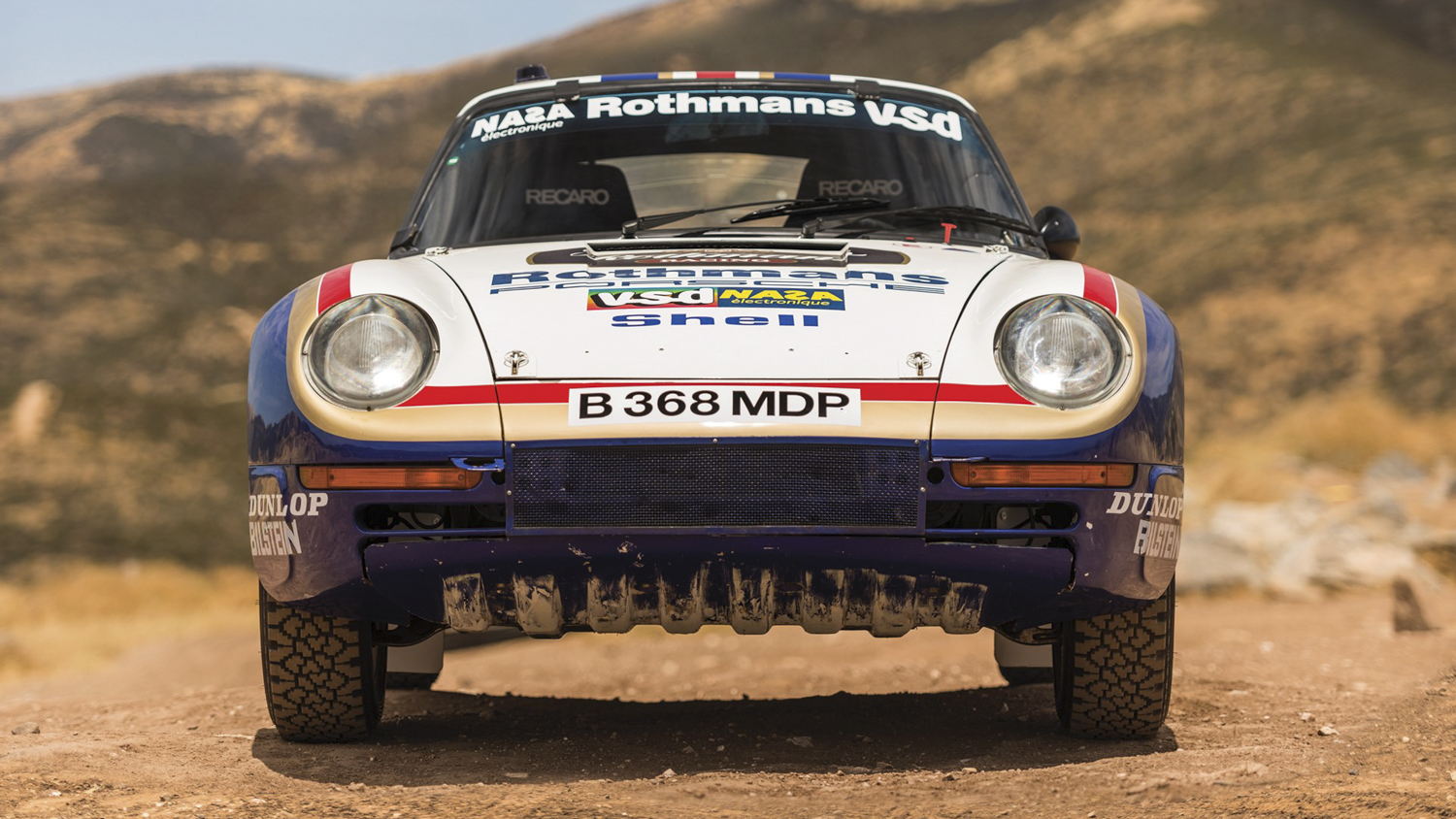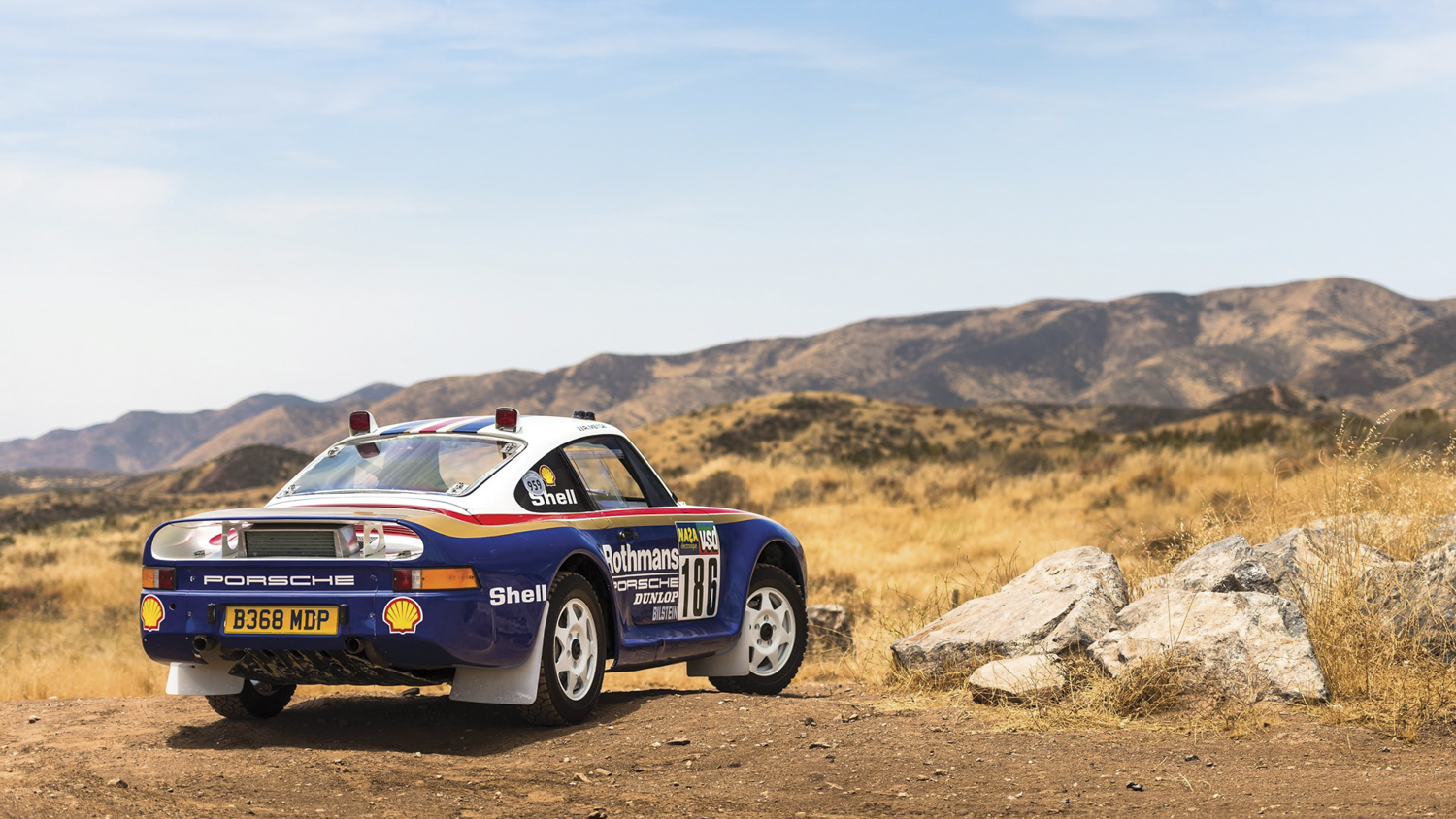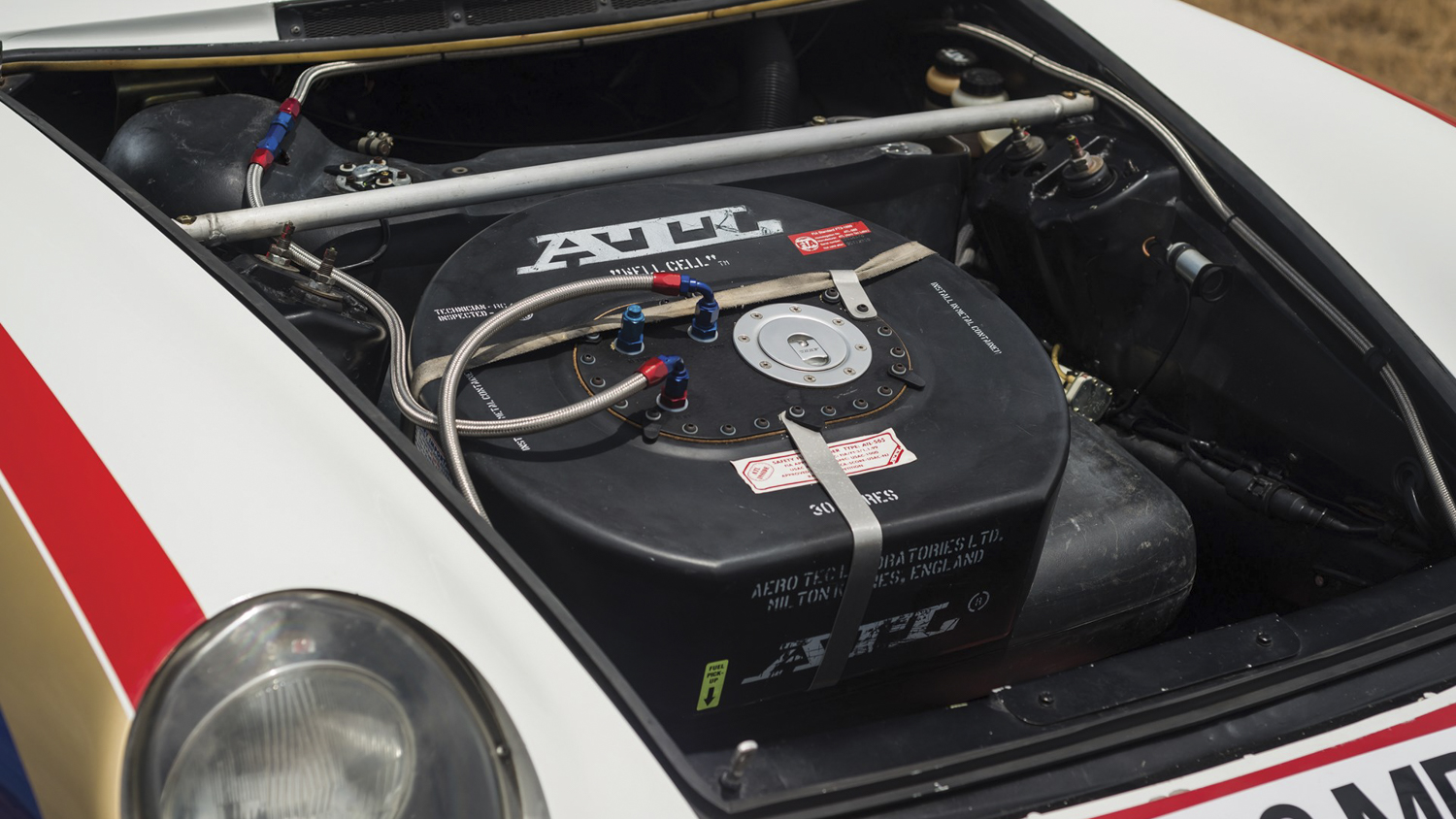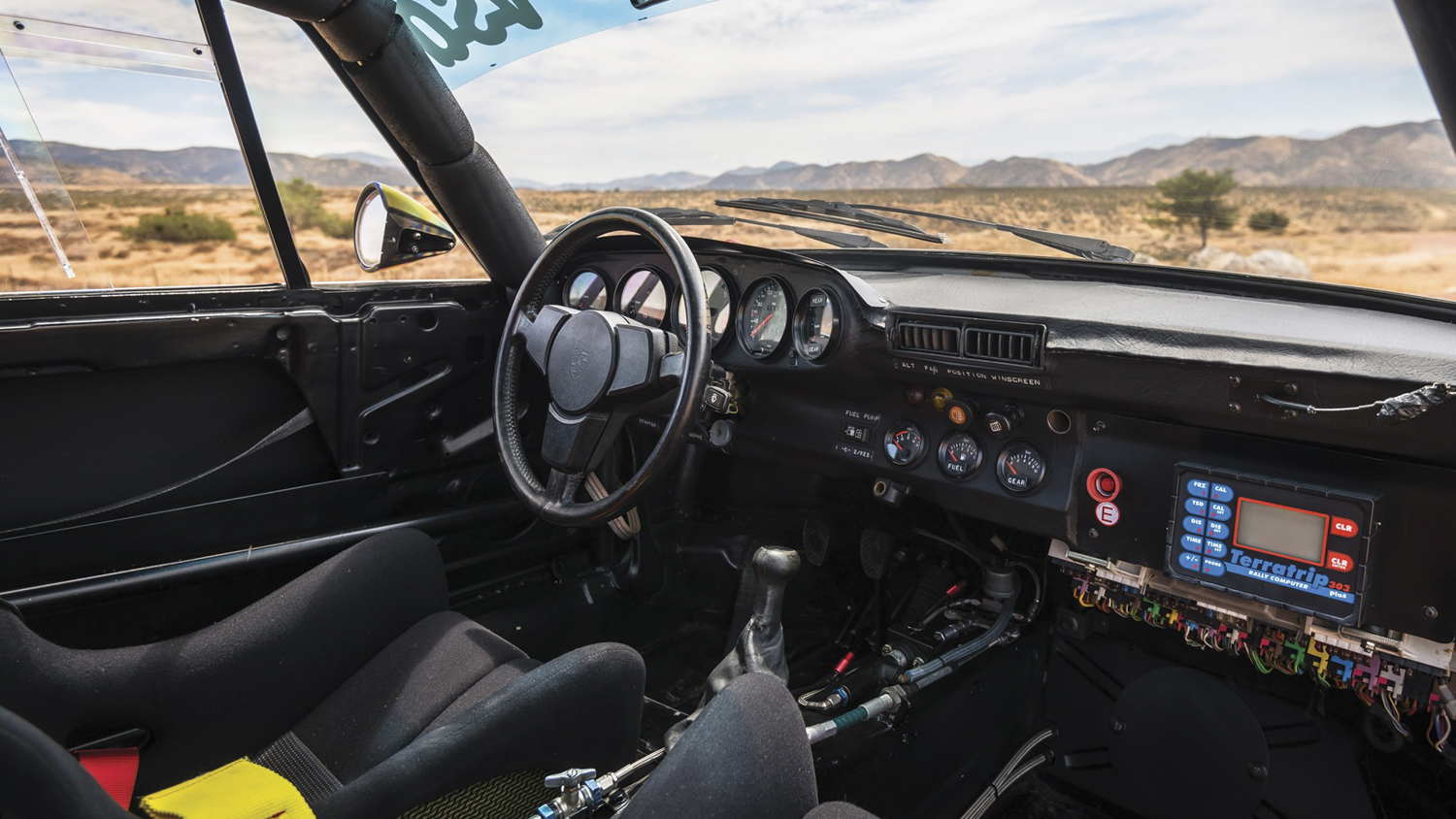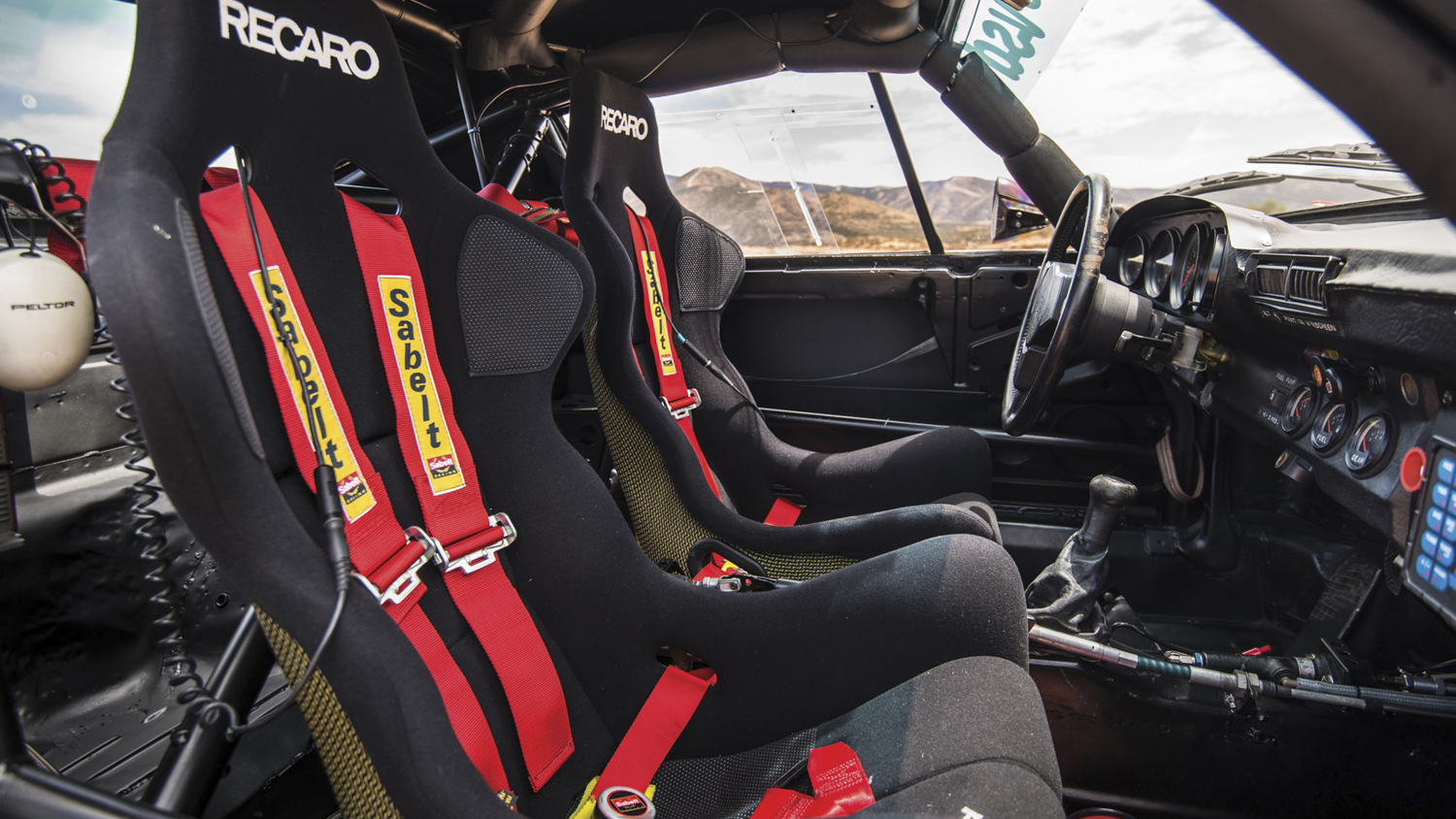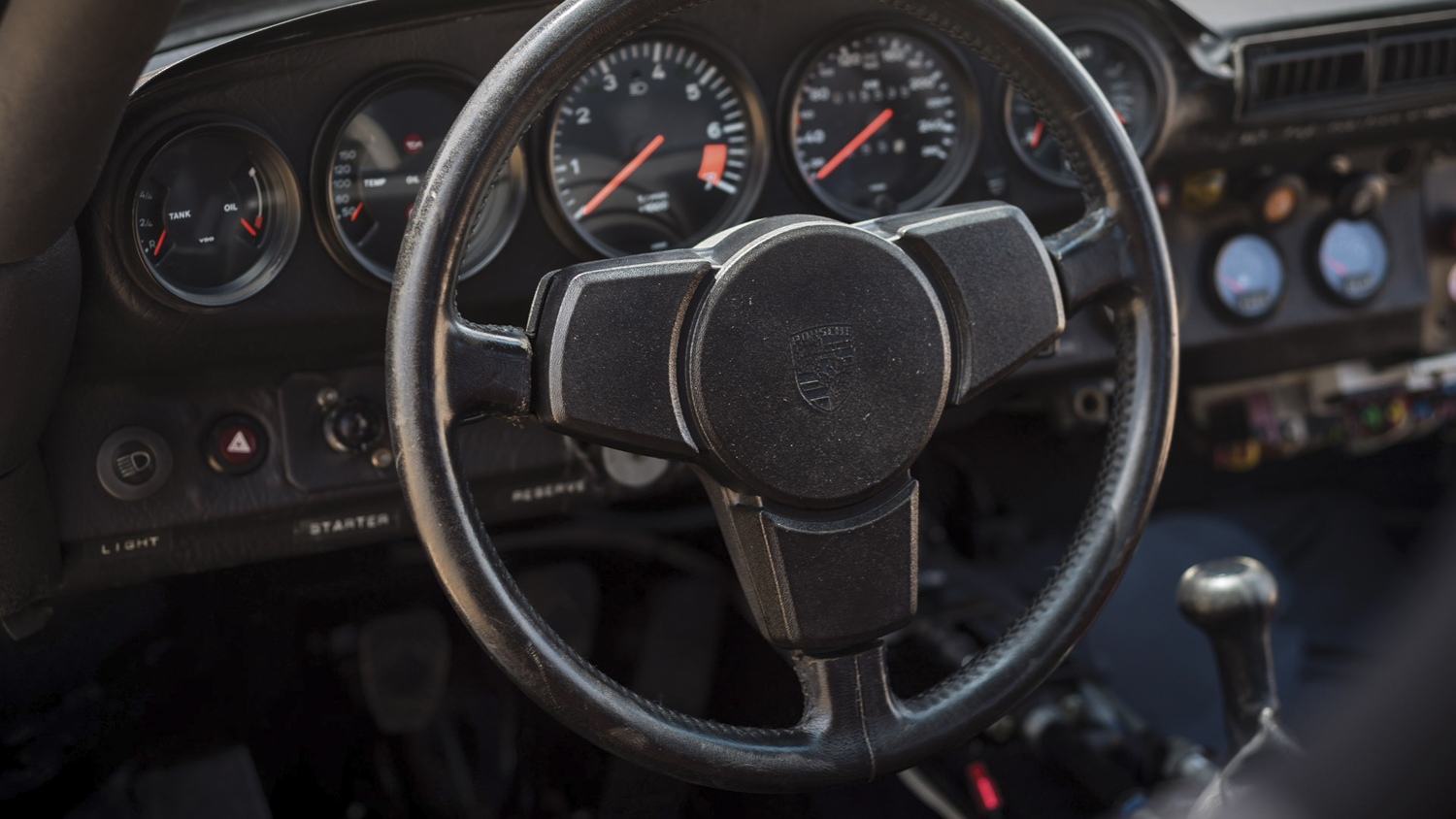The Porsche 959 was a radical machine when it debuted in 1985. What looked to be a standard 993 generation 911 with a muffin-top body was, in fact, one of the fastest, most advanced sports cars ever built. At the time of its inception, it actually was the fastest street-legal production car, with a top speed of 197 mph (later versions achieved speeds of up to 211 mph).
For all the reasons enthusiasts adore the 959 — including its sophisticated all-wheel drive system that gave birth to the 911 Turbo’s drivetrain, its twin-turbocharged flat six engine, and its advanced aerodynamics — few would consider its rallying career of particular consequence. Still, when Porsche entered the Paris-Dakar rally with a modified 959, it caused quite a stir.
It wasn’t until 1986 that Porsche’s achievement began slapping the world’s fastest cars around on the street, but a year prior, René Metge and Dominique Lemoyne flung the 959 through one of the toughest off-road stages on the planet. Hoping to repeat their first place finish from 1984 (at the helm of a Porsche 953), Metge and Lemoyne ran the 6,200-mile Paris-Dakar rally in the vehicle shown above. Unfortunately, an oil system failure kept Porsche from securing another win that year, but the automaker’s return in 1986 saw a first and second place finish in new 959s.

Porsche (via RM Sotheby’s) will auction this historic 959 among other motorsport models at its 70th anniversary sale at the Porsche Experience Center in Atlanta, Georgia on October 27. Any road-going 959 is rare, with some selling for as much as $2 million, but one with a racing history may be even more so coveted. The rally-prepped model in question is distinguished by a naturally aspirated 3.2-liter flat six engine that produced 232 horsepower (212 hp less than the twin-turbo street model). It also features unique wheels, all-terrain tires, a suspension lift, mud flaps, a roll cage, and skid plates.
If you can’t make it to Atlanta in October, Los Angeles’ Peterson Automotive Museum is currently displaying another 1985 Dakar Rally 959. While you’re there, be sure to check out the life-sized Lego McLaren 720S.
